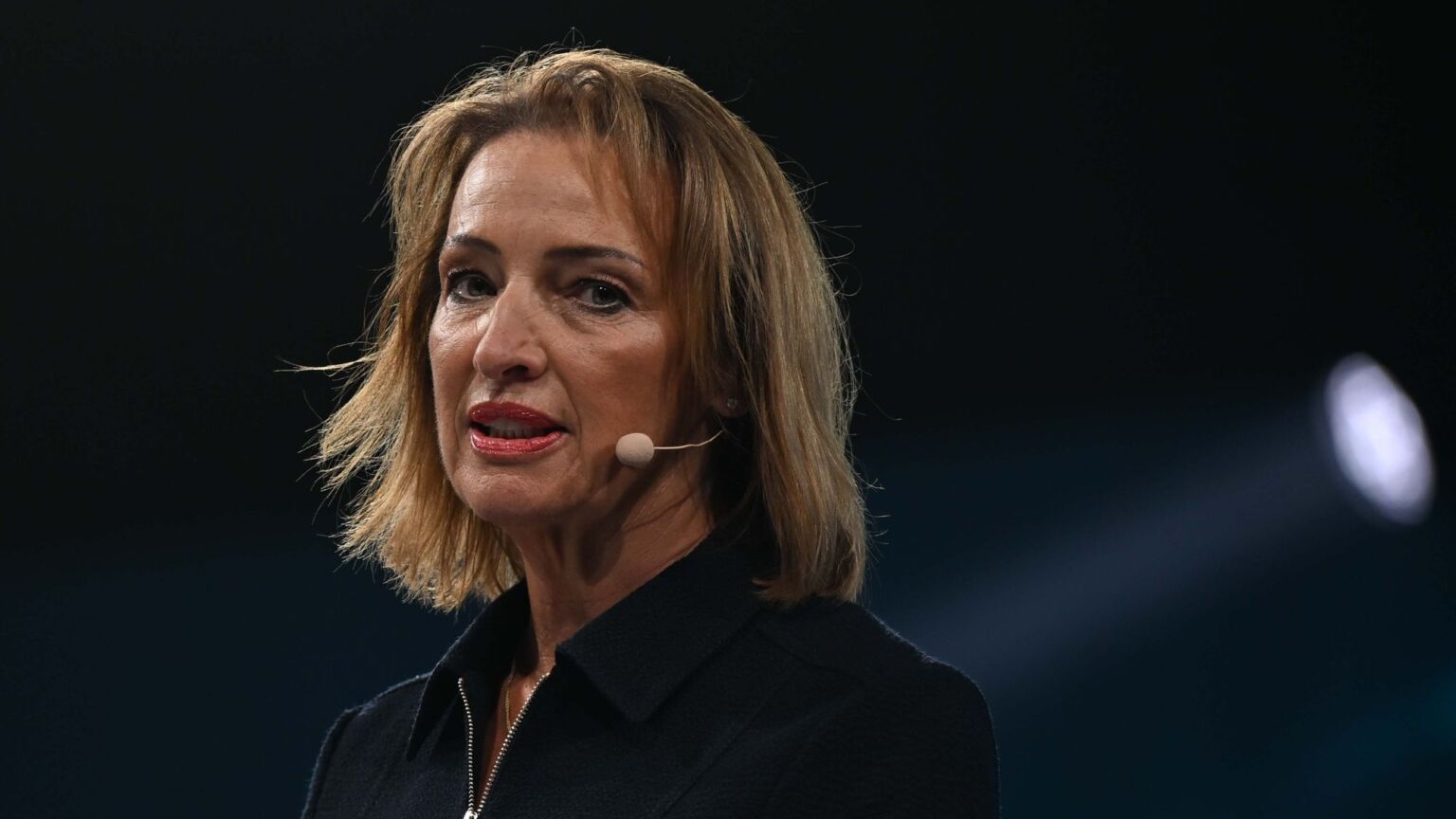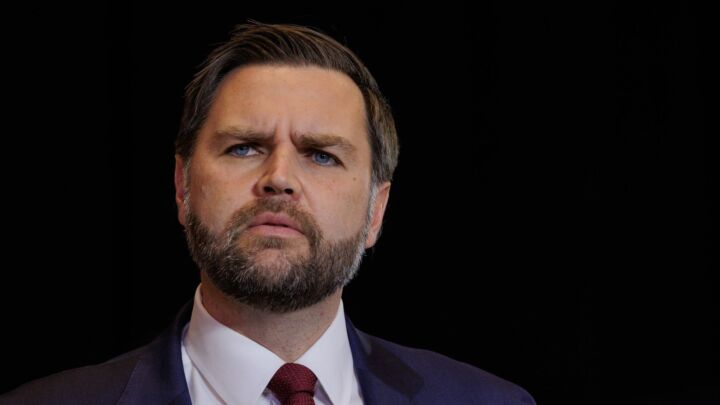Sarah Pochin has a point about ‘diversity’ in advertising
Ethnic-minority actors are wildly overrepresented in British TV adverts. Why is it taboo to say so?

Want unlimited, ad-free access? Become a spiked supporter.
Everyone knows that ethnic-minority actors have for years been ludicrously overrepresented in British television adverts. It is one of the most visible and persistent symptoms of the Great Awokening that began 10 years ago. Some spiked readers may recall that I first wrote about this development back in 2017, and better-known commentators (such as Rod Liddle and Lionel Shriver) have since echoed this view. For the most part, however, most people just sigh and mutter about this behind closed doors, rightfully fearing the consequences of openly voicing their exasperation or irritation.
Indeed, Reform UK MP Sarah Pochin recently voiced her annoyance and may now regret her intervention. During a phone-in on Talk on Saturday, a caller complained that people in adverts ‘don’t represent what this country looks like’, which is contributing to the ‘positive demonisation of white people’. In response, Pochin said that the caller was ‘absolutely right’, adding: ‘It drives me mad when I see adverts full of black people, full of Asian people.’
The outraged response has been as robotic as it has been formulaic. ‘I think what she said was a disgrace’, Wes Streeting, the UK health secretary, told the BBC. ‘I think it was racist… Reform is a party who thinks that our flag only belongs to some of us who look like me, not all of us who have built this country.’ Liberal Democrat MP Liz Jarvis added that: ‘If diversity on TV is driving her “mad”, maybe she could try educating herself on why it matters – and why her language was completely inappropriate for an MP.’
Pochin’s choice of words was certainly crass and clumsy, and she has since apologised ‘unreservedly’ for any offence caused. In essence, though, she was merely speaking a truth that everybody knows but few feel so bold to say. As she subsequently sought to clarify in a statement: ‘The point I was trying to make is that the British advertising-agency world has gone DEI mad and many adverts are now unrepresentative of British society.’
This is a truth and a trend that Channel 4 – of all organisations – has been dutifully monitoring in recent years in its ‘Mirror on the Industry’ project. Its 2019 report, based on a study of 1,000 adverts, found that 37 per cent featured black actors, despite the black population constituting just three per cent of the UK in the 2011 census. Even back then, this liberal broadcaster talked of ethnic-minority representation being ‘skewed’ towards this one particular group. This year’s diversity study from Channel 4 found that, in the top 500 commercials across all TV stations, about half featured black people – again, despite black people still only making up four per cent of the population, as of the 2021 census.
‘But it doesn’t matter! They’re only adverts!’ That has been another facile reaction to Pochin’s sentiments. That may be literally true, but what annoys people about hyper-tokenism in adverts is that it epitomises something far larger. It is an egregious manifestation of an overbearing race-obsessed ideology that has caused huge resentment and anger – especially among white people, many of whom now feel constantly demonised and judged unfairly merely on account of their skin colour. It’s ironic – but fitting – that Pochin’s remarks should have been made in the same week that we learnt that Oxford University is lowering its entry requirements for black candidates and that the Bank of England is running an internship programme that excludes white candidates.
While Pochin’s words have generated much indignation from progressives, last week there was a parallel uproar on the right over representation. In a report about the harassment of women on the London Underground, the Daily Mirror used a stock image of a white man in a suit leering over the shoulder of a mixed-raced woman. Again, this represented a further insult and indignity: public campaigns, adverts and television dramas, when they deign to show white men, invariably cast them as villains. Netflix’s Adolescence and the ongoing TV adverts for Nationwide are but two examples of this relentless trend.
‘Why is Sarah Pochin so obsessed with race? I don’t see colour, I only see people.’ That has been another response to her remarks from the liberal left – and this one has been the most ignorant, disingenuous and dishonest. After all, it is ‘progressives’ who are today most morbidly obsessed with skin colour. This has been the case ever since the left as a whole performed a volte-face on this matter a few decades ago, gradually jettisoning the classically liberal tenet of colourblindness and replacing it with a hyper-liberal fixation with race. It’s modern liberals who for years have been counting the black and brown faces in every single area of our society, calling out ‘lack of diversity’ where they see it, ‘subconscious racism’ where they sense it, and bemoaning myriad institutions for being ‘hideously white’. It’s the left who have given us race-based shortlists, quotas and DEI.
It is an ultra-progressive ideology, parroted by cowardly and low-intelligence mainstream liberals, that has landed us in this mess. At the end of the last millennium, in Britain at least, it felt like rampant racism was finally a thing of the past. But then came a new reactionary ideology, one masquerading as progressive, one that put race back at the forefront of everything, making it a totem that we dare not speak about freely. Is it any surprise that seeing and treating people foremost as belonging to racial categories should have led us here?
Just as we had the end of racism in our sights… then wokery arrived and ruined it all.
Patrick West is a spiked columnist. His latest book, Get Over Yourself: Nietzsche For Our Times, is published by Societas.
£1 a month for 3 months
You’ve hit your monthly free article limit.
Support spiked and get unlimited access.
Support spiked – £1 a month for 3 months
spiked is funded by readers like you. Only 0.1% of regular readers currently support us. If just 1% did, we could grow our team and step up the fight for free speech and democracy.
Become a spiked supporter and enjoy unlimited, ad-free access, bonus content and exclusive events – while helping to keep independent journalism alive.
———————————————————————————————————————————–
Exclusive January offer: join today for £1 a month for 3 months. Then £5 a month, cancel anytime.
———————————————————————————————————————————–
Monthly support makes the biggest difference. Thank you.










Comments
Want to join the conversation?
Only spiked supporters and patrons, who donate regularly to us, can comment on our articles.